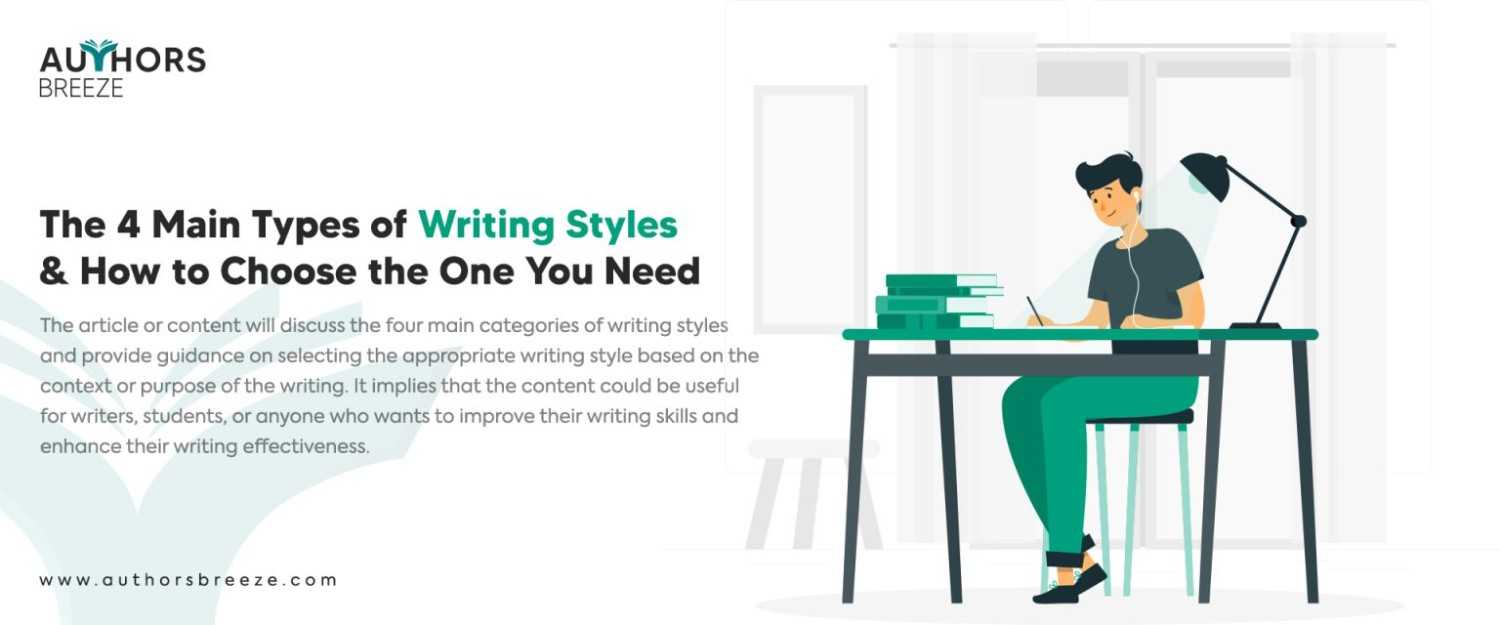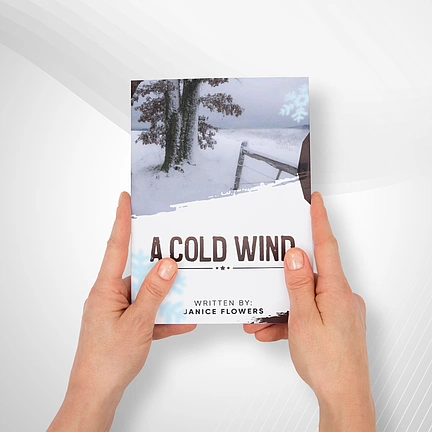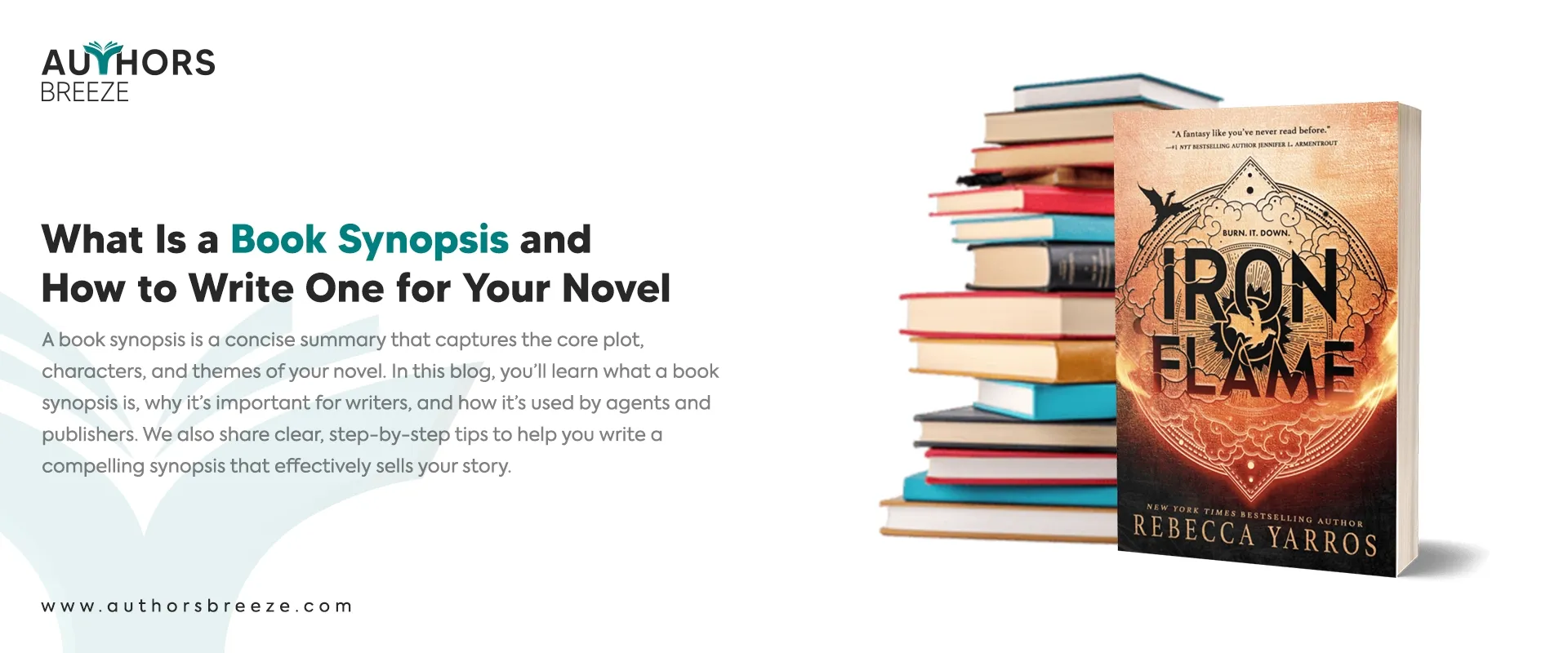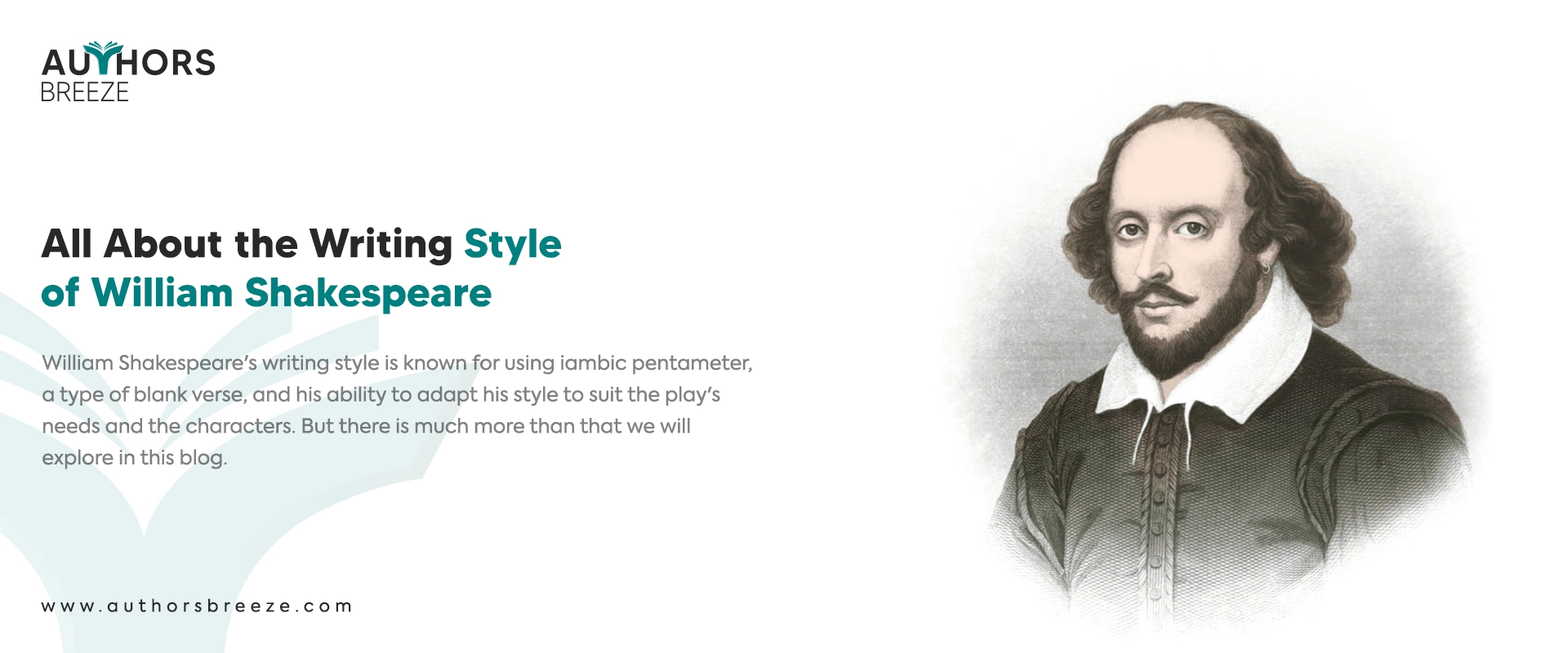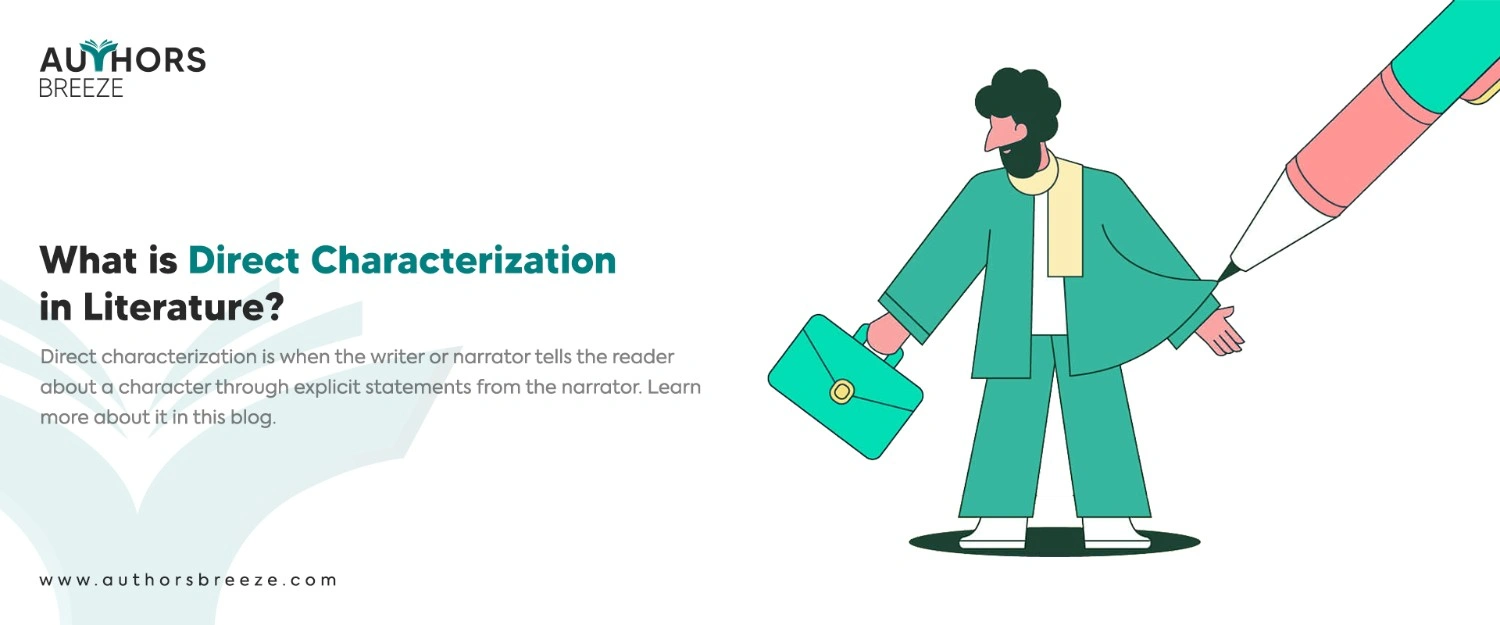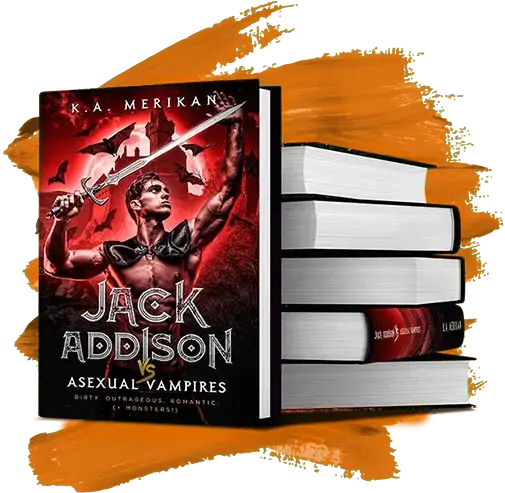Writing is a crucial communication skill that people utilize in many areas of life, including academic, professional, and personal contexts. However, not all writing styles are created equal. Moreover, choosing the appropriate one among different writing styles can greatly impact the effectiveness and impact of your written message.
The 4 Main Writing Styles
Whether you’re a student, a professional, or simply someone who wants to improve your writing skills, understanding the writing styles can help you communicate more effectively and achieve your goals.
Let’s take a look at the main four writing styles:
Descriptive Writing Style
Descriptive writing is a style that uses vivid and sensory details to create an impression in the mind of the readers. Writers use this style to make a picture of a person, place, or thing by appealing to the senses of the readers. This style often employs the use of metaphors, similes, and other literary devices to convey meaning.
Examples of Descriptive Writing Styles
Examples of descriptive writing include nature writing, poetry, and creative nonfiction. For example, the poem “I Wandered Lonely as a Cloud” by William Wordsworth. In the poem, he uses descriptive language to create an image of a field of daffodils in the reader’s mind.
Appropriate Situations for Using Descriptive Writing
Descriptive writing is appropriate in situations where the writer creates an emotional response in the reader, such as in poetry or creative nonfiction. It is also used in product descriptions, travel writing, and any book advertisement where the writer wants to create a visual image in the reader’s mind.
Tips for Effective Descriptive Writing
Writers should focus on using sensory details and vivid language for descriptive writing. They should also pay attention to their choice of words, using adjectives and adverbs that create a clear image in the reader’s mind. Using figurative languages, such as metaphors and similes, can also be effective in creating a strong visual impression. It is vital to avoid overusing descriptive language and to maintain a balance between description and action.
Persuasive Writing Style
Persuasive writing is a style that aims to convince the reader to take a particular action or adopt a specific belief. It often presents arguments and evidence to support a particular viewpoint or position. This style is known for its use of persuasive languages, such as emotional appeals and rhetorical devices.
Examples of Persuasive Writing
Examples of persuasive writing include opinion pieces, speeches, and advertising. For instance, a candidate may use persuasive language in a political speech to convince voters to support their platform.
Appropriate Situations for Using Persuasive Writing
Persuasive writing is appropriate when the writer wants to change the reader’s opinion or behavior. This style is common in advertising, politics, and advocacy work. It can also be used in academic writing. Web content writers also use it to persuade online customers.
Tips for Effective Persuasive Writing
To write practical, persuasive text, writers should focus on presenting a clear argument supported by evidence. They should use clear language, such as emotional appeals and rhetorical devices, to connect with the reader and make their argument more compelling. It is also essential to anticipate and address counterarguments to strengthen the overall idea. Also, writers should be aware of their audience and tailor their writing to the values and beliefs of the readers.
Expository Writing Style
Expository writing is a style that aims to explain or inform the reader about a particular topic or subject. It is defined by its use of clear and concise language, logical organization, and objective tone. This style often employs definitions, examples, and statistics to convey info.
Examples of Expository Writing
Examples of expository writing include textbooks, news articles, and encyclopedia entries. For instance, in a news article, the writer may use an expository style to provide readers with the background info they need to understand a current event.
Appropriate Situations for Using Expository Writing
Expository writing is appropriate when the writer wants to explain or inform the reader about a particular topic or subject. It is common in academic writing, such as in research papers and essays. It is also common in a technical writing blog, such as in user manuals and instruction guides.
Tips for Effective Expository Writing
To write compelling expository text, writers should focus on presenting info in a clear and concise manner. They should use a logical organization, such as chronological or cause-and-effect, to help readers understand the given data. Using definitions, examples, and statistics can also be effective in conveying info. It’s essential to avoid bias and maintain an objective tone throughout the text.
Narrative Writing Style
Narrative writing is a style that tells a story or recounts an event. Its use of vivid language, sensory details, and a clear narrative arc defines it. This style often employs the use of dialogue, character development, and setting descriptions to bring the story to life.
Examples of Narrative Writing
Examples of narrative writing include memoirs, short stories, and novels. You can take the book “To Kill a Mockingbird” by Harper Lee, for instance. In the book, the story is told through the eyes of a young girl named Scout, who narrates her experiences growing up in the Deep South during the 1930s.
Appropriate Situations for Using Narrative Writing
Narrative writing is appropriate in situations where the writer wants to tell a story or recount an event. It is common in writing articles and creative writing, such as in novels and short stories. It can also be used in personal essays and memoirs.
Tips for Effective Narrative Writing
To write compelling narrative text, writers should focus on creating a clear narrative arc with a beginning, middle, and end. They should use vivid language and sensory details to bring the story to life and engage the imagination of the reader. Developing well-rounded characters, using dialogue, and describing the setting can also effectively create a compelling story. Also, it is crucial to maintain a consistent tone all over the text and avoid digressions that distract from the story.
How to Choose the Writing Style You Need?
Writing is an essential skill that we use every day to communicate ideas, thoughts, and feelings. The way we write can have a significant impact on how our message is received by our audience. This is why it’s essential to choose the appropriate writing style for your purpose and audience.
The Purpose of Your Writing
The purpose of your writing is crucial in determining the appropriate writing style. Are you trying to inform, persuade, describe, or tell a story? Knowing your purpose will help you choose the proper writing style that effectively achieves your goal.
Consider Your Audience
Your audience is another critical factor in choosing the appropriate writing style. Who will be reading your writing? Are they experts in the subject matter, or are they laypeople? Understanding your audience’s needs, interests, and knowledge level will help you choose a writing style that resonates with them.
The Tone and Style Appropriate for the Subject Matter
Your chosen tone and style should match the subject matter you are writing about. For example, a persuasive or expository writing style might be more appropriate if you are writing about a serious topic, such as a health issue. On the other hand, if you are writing about a personal experience, a narrative writing style might be more fitting.
Your Strengths and Weaknesses as a Writer
Knowing your strengths and weaknesses as a writer can also help you choose the appropriate writing style. A descriptive writing style might be a good fit if you excel at describing sensory details. An expository writing style might be more suitable if you enjoy researching and presenting facts.
Practice and Experimentation
The best way to choose the appropriate writing style is to practice and experiment with different writing styles. Try writing the same piece using different writing styles and see which works best for your purpose and audience. You will become more adept at choosing the appropriate writing style for any given situation with practice.
FAQs
Can I Use More Than One Writing Style In My Writing?
Yes, it is possible to use more than one writing style in your writing. For example, you might use a descriptive writing style to create a vivid sensory experience. Then, you can switch to an expository writing style to provide factual information. However, it is crucial to use each writing style appropriately and in a way that enhances the overall effectiveness of your writing.
Why Is Choosing The Appropriate Writing Style Important?
Choosing the appropriate writing style is essential. It helps to ensure that your writing is effective in achieving its intended purpose. Using the wrong writing style can lead to confusion, disengagement, and a lack of impact on your audience. The appropriate writing style can make your writing more engaging, persuasive, and memorable.
Can Writing Styles Change Over Time?
Yes, writing styles can change over time. As writers develop their skills and experience, they may become more comfortable with different writing styles. Moreover, they may adapt their writing to suit different audiences and purposes. Writing styles can also evolve and change in response to changes in society, culture, and technology.
How Do Writing Styles Differ From Writing Genres?
Writing styles refer to the techniques and approaches used in writing. On the other hand, writing genres refer to the categories or types of writing, such as fiction, nonfiction, poetry, or drama. A particular writing style can be used in different writing genres. However, unlike writing, genres require different writing styles. For example, the narrative writing style can be used in fiction and nonfiction.
Conclusion
An appropriate writing style is essential to communicate your message to your audience effectively. You can select the type that best fits your goals and audience if you understand the different writing styles and their purposes.
Regardless of your writing style, there are a few critical tips for effective writing. By following these tips, you can improve your writing and better connect with your audience. We hope that this guide will help you in your writing journey. However, if you want the best ghostwriters for hire, you can have our book writing services at your disposal.

